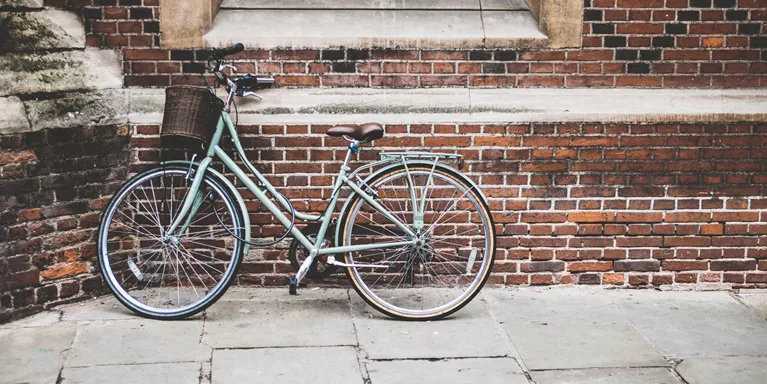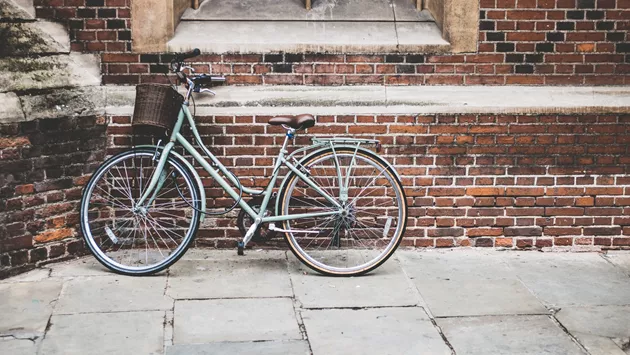How I cope with my depression and anxiety
Gethin shares his experiences of mental health problems and his coping mechanisms.
I swear that, every year, Mental Health Awareness Week comes around far more quickly! For this one, after finding solace and support over the years in reading Mind’s ''Your Stories', I thought I’d take a punt at writing about my own experiences and coping mechanisms.
My background
Mental health is an issue which has been close to my heart for quite some time. Sadly in 2007, we lost my Dad to depression – a well-grounded and loving family man, his passing crippled us all in a way we never could have imagined. I’ll also be completely candid (as is often best with all things mental health) and say that I suffer from depression and anxiety, and have done for some years now.
I’ve no doubt that many of you reading this are or will have been in a similar position – especially as a result of the unprecedented (yes, I’ve grown to despise that word too..) 2 years or so that we’ve all faced. Worryingly, it’s estimated that, every year, 1 in 4 of us will experience a mental health problem. Even more worrying a statistic is that suicide is the single biggest killer of men aged under 45 in the UK – think about it: that’s ahead of cancer, cardiac, respiratory and all other diseases.
Given all the above, I try to be an active advocate for mental health and well-being (probably to the annoyance of half the population of LinkedIn!), and have tried to promote and fundraise for the good causes which tackle the lack of support (but abundance of stigma) as much as I can. I’m a firm believer that mental illness doesn’t discriminate, in the same way as the cruelty of cancer – nobody can claim to be immune to it.
Self-help tips
So, how do I manage my depression and anxiety? Disclaimer: I’m in no way a life-hack guru and, trust me, often don’t practise what I preach – but I’ve found the following tips (from online and from experience) to be really handy, alongside my regular medication:
Learn to switch off
We currently live in an age of information-overload and hyper-connectivity. I remember during the height of the pandemic, for example, being unhealthily hooked on the news 24/7 – so much so that Huw Edwards and Fiona Bruce felt like part of the family! I’ve found that it’s vital now more than ever, therefore, that we learn how to disconnect from the world’s hectic nature generally.
Work-life balance is another key factor in the switching-off challenge. Working from home should be no different to being on-site – just as you should when you physically leave the office, detach from your phone and laptop at the end of the working day, and start afresh in the morning. Don’t let the timezone-less rules of homeworking derail your routine.
Relax
Easier said than done, I know! But taking a break or time out to relax during the day can work wonders – whether it’s simply a change of scenery, grabbing some Vitamin D, or something more active like yoga or taking up a new hobby.
Many people find breathing exercises in particular really useful, especially during times of stress and anxiety – see NHS guidance here for some techniques.
Equally, meditation and mindfulness (e.g. through the Headspace app) are also very effective tools for many people in zoning out from their thoughts – give it a go, even if you’re a sceptic or newbie.
My mode of relaxation normally looks like a long walk outside (with Fleetwood Mac on loop), or a good read at the end of the day or in the garden (with Matt Haig’s books being particular favourites of mine on the mental health/ wellbeing front).
Look after your body
It’s no secret that any form of exercise can brilliantly complement wellbeing, self-esteem, and good sleep – even if it’s just getting some well-needed fresh air and those steps in during lunch or after work. My tonic (the non-gin type, at least) is running, and the post-jog endorphin kick really is second-to-none.
Similarly, look after your body through the things you eat. Science shows that the gut and mind are interlinked – so make sure you get a balance of nutrients in your diet, to keep your mind in good shape too.
And, of course, there’s the significance of sleep. Setting a bedtime routine, avoiding screens, and getting your 8-hours can all contribute to a happier mind.
Talk
Finally, and probably the most essential of all tips – open up, if you feel comfortable enough. The importance of talking is a cliché as long as time, but for good reason – venting your feelings can often make it easier to cope with them.
In need of support?
If you are ever in need of a little guidance or care, there are plenty of great resources and organisations out there, which you can find on Mind's list of useful contacts.
Above all, remember that it’s just as vital to look after your mental health as it is your physical health – and there’s never any shame in asking for help, or in admitting that you’re struggling.

Related Topics

Get involved
There are lots of different ways that you can support us. We're a charity and we couldn't continue our work without your help.
Share your story with others
Blogs and stories can show that people with mental health problems are cared about, understood and listened to. We can use it to challenge the status quo and change attitudes.

















